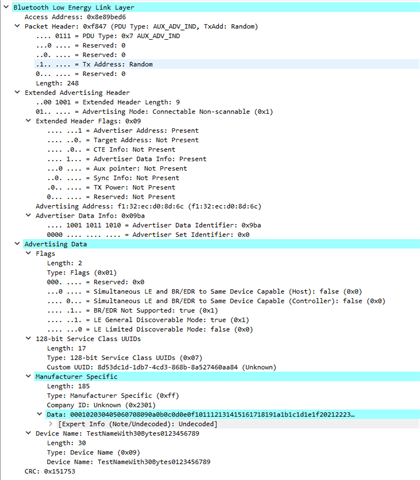Hello,
I am using a nrf5340 together with nrf Connect SDK v2.4.2.
I use extended advertising to be able to send manufacturer specific data.
For now I am able to send 184 bytes of data including my company id.
According to Bluetooth specification it is possible to send more manufacturer specific data in one advertising packet. It should be 252 bytes: (How many bytes can you include in a BLE advertising packet? | Novel Bits)
In my application the data of the advertising packet also includes the device name which is 30 bytes long and the 128-Bit UUID.
So I calculated the size of the extended advertising packet as follows:
In prj.conf I set CONFIG_BT_EXT_ADV to yes and CONFIG_BT_DEVICE_NAME_MAX to 30 bytes.

It seems the size is limited to CONFIG_BT_CTLR_DATA_LENGTH_MAX which I can set maximum to 251 bytes ?!
What must I change / add to to use 252 bytes of manufacturer specific data?
Regards
Jan


